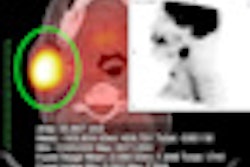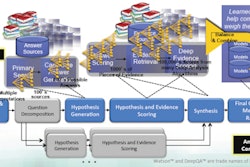May 7 was the deadline to comment on the second stage of achieving meaningful use (MU), the U.S. government's initiative promoting conversion to healthcare IT. The deadline triggered a flurry of activity from interested parties, including the American College of Radiology (ACR) and the American Society for Radiation Oncology (ASTRO).
ACR and ASTRO were among those who issued detailed comments, each with the goal of persuading the U.S. Centers for Medicare and Medicaid Services (CMS) and the Office of the National Coordinator for Health IT (ONC) to make the proposed rules even more palatable for radiologists and radiation oncologists.
Stage 2 represents the second of three stages of stimulus funding provided by the U.S. government to spur adoption of healthcare IT by physicians and hospitals who serve Medicare and Medicaid patients. As with stage 1, it consists of two sets of rules, one relating to clinical requirements and the other to the technology that will make the first happen.
ACR's comments
The ACR suggested modifications to stage 1 meaningful use requirements, potential stage 2 requirements, new clinical quality measures, and timelines for avoiding future penalties for noncompliance.
The ACR stressed that CMS and ONC should make the program more relevant for specialists and their patients. As of February 2012, fewer than 400 ACR members had successfully attested that they were meeting stage 1 requirements.
The organization endorsed that proposed rules for clinical decision support (CDS) and computerized physician order entry (CPOE) be broadened and made stronger. Specifically, the ACR recommended that eligible providers be required to meet the 60% threshold for ordering diagnostic imaging examinations as an independent requirement, not one bundled with other types of testing. It also recommended that CDS be tied to CPOE, based on appropriateness criteria developed by physician associations.
The ACR's letter to CMS is available here, and the letter to ONC can be accessed by clicking here.
ASTRO's comments
ASTRO's letter to CMS emphasized the complexity of information transfer for patient treatment and the need for accuracy and completeness. It recommended that CMS implement the Integrating the Health Enterprise - Radiation Oncology (IHE-RO) profiles as part of the meaningful use standards.
"In a typical radiation oncology clinic, information flows from imaging equipment through treatment planning software, to treatment management software, and finally to the treatment delivery machine, which delivers a precise dose of radiation to the patient," ASTRO explained.
Because the components of this system are often designed by different vendors, achieving seamless connectivity poses a constant obstacle for radiation oncologists, and the risk of error and compromised patient safety is extremely high, ASTRO pointed out.
ASTRO supports a number of recommendations made by the American Medical Association (AMA), including surveying physicians who elected not to participate in stage 1 to identify their reasons for doing so. Stage 2 proposed rules should be carefully evaluated with respect to impact, value, cost, risks, administrative burden, and technological standards.
ASTRO also recommended that high thresholds be avoided for new measures and those that cannot be met due to the lack of available, affordable, well-tested tools or abundant bidirectional health information exchanges (HIEs). It also suggested, as did the ACR, that measures based on patients' use of technology and other measures that are outside a physician's control be eliminated.



















